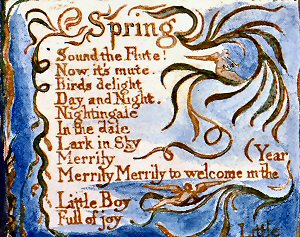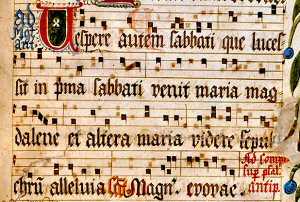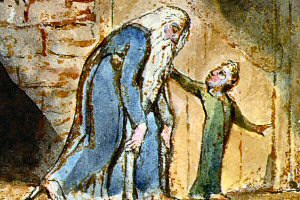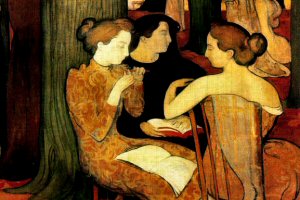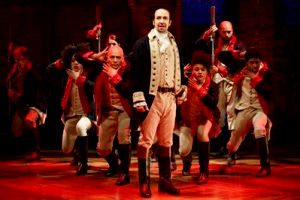 |
Pierfrancesco Cavalli, 1602–76. Italian composer.
The leading opera composer after Monteverdi, his works dominated the Venetian stage in the mid 1600s, and frequently addressed mythological subjects, such as his La Calisto (1651).
|
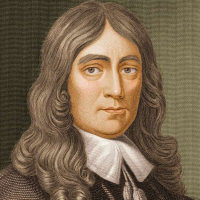 |
John Milton, 1608–74. English poet.
Milton's immense poem Paradise Lost (1667) is widely considered one of the masterpieces of English literature. He also wrote numerous shorter poetic works and a variety of political or philsophical pamphlets. At various times, he was also in government service. He was almost totally blind for his last two decades, and had to dictate his work.
|
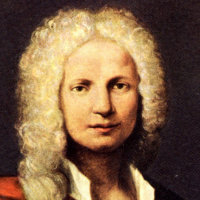 |
Antonio Vivaldi, 1678–1841. Italian composer.
Vivaldi, who was ordained as a priest, but lived a largely secular life, was an amazingly prolific composer of music in most genres, including opera, oratorio, and the instrumental concerti on which his later fame mainly rests.
|
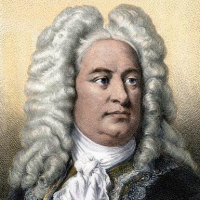 |
George Frideric Handel, 1685–1759. German-born English composer.
Gradually over the last half-century, Handel's 42 operas and numerous dramatic oratorios have been recognized as placing him on the level of Mozart and Verdi as an opera composer. The delay in appreciation is partly due to the fact that his preferred form, opera seria, is based almost entirely on recitative and solo arias. Born in Germany and trained in Italy, he dominated the English musical scene in the first half of the 18th century.
|
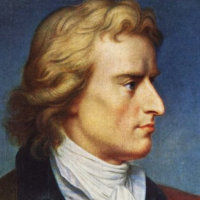 |
Friedrich Schiller, 1759–1805. German poet, playwright, humanist, and philosopher.
A close friend with Goethe, he was also a leading figure in "Weimar Classicism." His historical dramas such as Mary Stuart, Don Carlos, and William Tell became important sources for 19th-century operas.
|
 |
Anne-Louis Girodet, 1767–1824. French painter.
Girodet was a student of Jacques-Louis David's, and like him spent several years in Italy. His manner is generally more Romantic, however, with a particular interest in evocative lighting effects. In adulthood, he styles himself Girodet-Trioson, in honor of the man who adopted him (and may well have been his natural father).
|
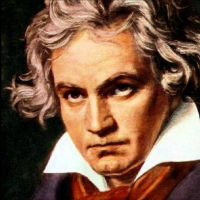 |
Ludwig van Beethoven, 1770–1827. German composer, working primarily in Vienna.
The dominant composer of his time, Beethoven wrote 9 symphonies, 16 string quartets, 32 piano sonatas, and one opera, Fidelio, which he labored on in several versions between 1805 and 1814. From about 1800 onwards, increasing deafness gradually put an end to his performing career, although he wrote some of his finest works when totally deaf. He is one of the first composers to exhibit a distinct late style.
|
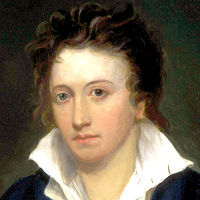 |
Percy Bysshe Shelley, 1792–1822. English poet.
With his friend Byron, Shelley was the outstanding English Romantic poet of the generation after Wordsworth and Coleridge. Politically engaged, and intellectually acute, he was an avowed atheist, a stance that got him expelled from Oxford, and kept him out of England for much of his short career. He drowned in a boating accident off Livorno at the age of 29. His second wife, Mary Godwin Shelley, was the author of Frankenstein.
|
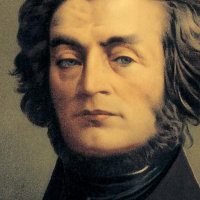 |
Adam Mickiewicz, 1798–1855. Polish poet.
Mickiewicz was born in Polish Lithuania under Russian occupation. His support of Polish independence as a young man led to a five-year exile in Russia itself, after which he moved to Paris. It was there that he wrote his book-length poem Pan Tadeusz (1834), now regarded as the Polish national epic. He continued to support Polish causes from outside the country until he died in Istanbul, raising Polish forces to fight the Russians in the Crimean War.
|
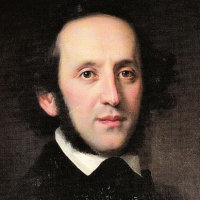 |
Felix Mendelssohn Bartholdy, 1809–47. German composer.
A major figure in the Romantic movement and a precocious talent, he wrote many of his best-known works (such as the Midsummer Night's Dream overture) while still in his teens.
|
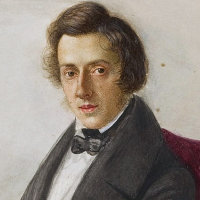 |
Fryderyk Chopin, 1810–49. Polish composer.
Chopin was a virtuoso pianist (though for the most part avoiding the concert stage), and wrote almost exclusively for the piano, in a variety of shorter forms, many reflecting the dances of his native Poland, which he left at age 20 to escape the consequences of a revolution. He spent his adult life in Paris, where he was a frequent guest at salons. He maintained a long relationship with the writer George Sand.
|
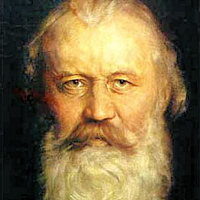 |
Johannes Brahms, 1833–97. German composer.
Although writing music whose harmonies and colors eiptomized the Romantic age, Brahms was a classicist at heart, developing the traditional forms of symphony, sonata, quartet and so on, and avoiding program music and opera. A master of virtually every genre, he is often listed together with Bach and Beethoven as the third of the "Great Bs."
|
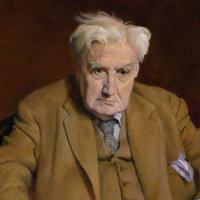 |
Ralph Vaughan Williams, 1872–1958. English composer.
Associated with the English folk song revival, he was more than anybody responsible for giving English music its national voice. He wrote nine symphonies and numerous vocal works, including the one-act opera Riders to the Sea. His first name is pronounced "Rafe."
|
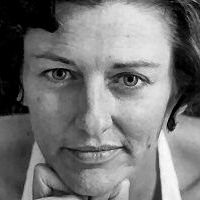 |
Anne Sexton, 1928–74. American poet.
Sexton was a "confessional poet" known for her frank treatment of her bipolar disorder, suicidal tendencies, and other intimate details of her private life. She won the Pulitzer Prize in 1967 for her book Live or Die. She killed herself in 1974.
|
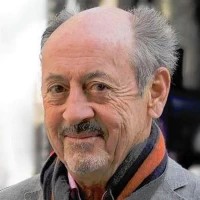 |
Billy Collins, 1941– . American poet.
One of the best-known and most approachable contemporary American poets, Collins was Poet Laureate of the United States between 2001 and 2003.
|
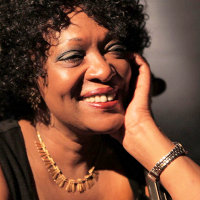 |
Rita Dove, 1952– . American poet.
Dove is a Pulitzer Prize winner (1987) and a former Poet Laureate (1993–95). She teaches at the University of Virginia. Her work is wide-ranging and addresses a variety of themes, including the life of the Black violin prodigy George Bridgetower, the original dedicatee of Beethoven's Kreutzer Sonata, whose tragedy she explored in her 2009 book Sonata Mulattica,
|
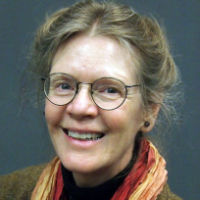 |
Jan Zwicky, 1955– . Canadian poet and philosopher.
Zwicky has taught philosophy at Princeton and several Canadian universities, exploring the resonance between philosophical and poetic thinking. Her poetry is often inspired by music. She was appointed to the Order of Canada in 2022.
|
 |
Mark Morris, 1956– . American dancer, choreographer, and conductor.
Both as leader of his own company since 1980 and in collaborations all over the world, Morris has created works noted for their expressivity, humor, and power to surprise. Morris is exceptional in his reponse to music of all periods, which had led him into opera directing and even to conducting.
|
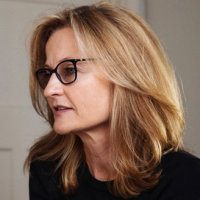 |
Julie Cooper, 1965?– . English composer.
Cooper has written music for films, television, and stage plays, in addition to concert music. Her most recent album is Continuum (2002), a kind of musical diary of life under lockdown.
|
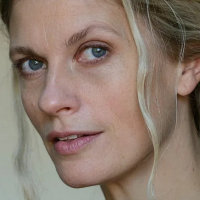 |
Crystal Pite, 1970– . Canadian choreographer.
Pite began work as a dancer with Ballet British Columbia and then spent several years with Ballet Frankfurt. She returned to Canada as a choreographer in 2001, and in 2002 founded her own company Kidd Pivot, for which she continues to create new works, in addition to managing a burgeoning career in Amsterdam, Paris, London, and many other centers.
|
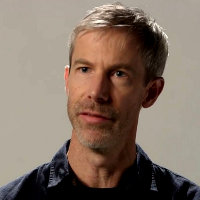 |
Jonathon Young, 1973– . Canadian playwright and actor.
In addition to his extensive work in film and television, Young is the co-founder and Artistic Director of the Electric Theatre in Vancouver; he has written several scripts for that company and for the dance group Kidd Pivot.
|
 |
Caroline Shaw, 1982– . American composer.
Aged only 30, Shaw was the youngest ever winner of the Pulitzer Prize in Music for her ground-breaking Partita for Eight Voices (2013). She performs regularly as a violinist (which she began at age 2), and vocalist (with the group Roomful of Teeth, for whom she wrote Partita), and even with rapper Kanye West. Composition was a comparatively late career choice.
|
